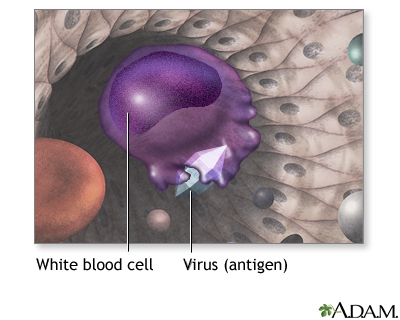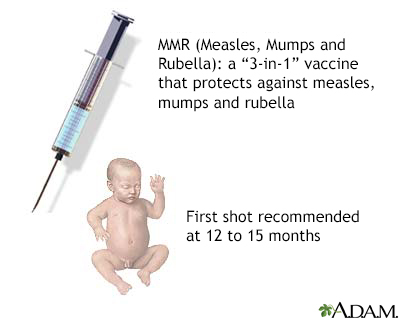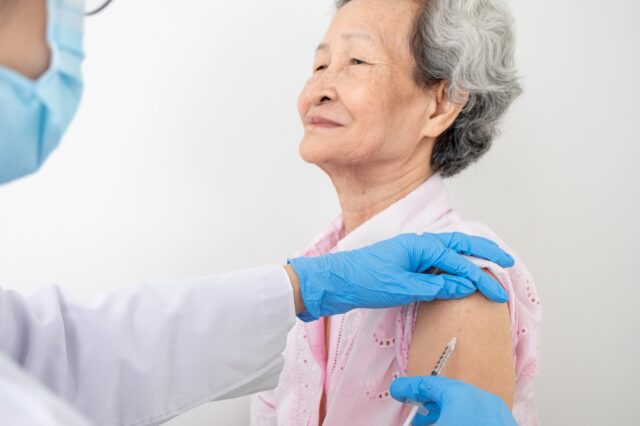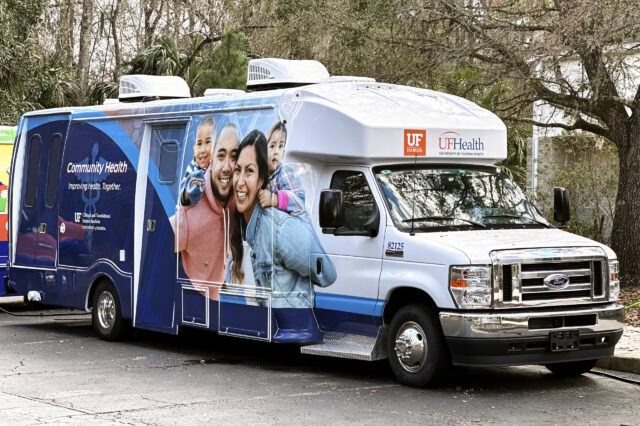Definition
Vaccines are used to boost your immune system and prevent the risk of infection and the severity of infections, including those that cause serious, life-threatening diseases.
Alternative Names
Vaccinations; Immunizations; Immunize; Vaccine shots; Prevention - vaccine
Information
HOW VACCINES WORK
Vaccines "teach" your body how to defend itself when germs, such as viruses or bacteria, invade it:
- Vaccines expose you to a very small, very safe amount of viruses or bacteria that have been weakened or killed.
- Your immune system then learns to recognize and attack the infection if you are exposed to it later in life.
- As a result, you will not become ill, or you may have a milder infection. This is a natural way to deal with infectious diseases.
Five types of vaccines are currently available:
- Live virus vaccines use the weakened (attenuated) form of the virus. The measles, mumps, and rubella (MMR) vaccine and the varicella (chickenpox) vaccine are examples.
- Killed (inactivated) vaccines are made from a protein or other small pieces taken from a virus or bacteria. The whooping cough (pertussis) vaccine is an example.
- Toxoid vaccines contain a toxin or chemical made by the bacteria or virus. They make you immune to the harmful effects of the infection, instead of to the infection itself. Examples are the diphtheria and tetanus vaccines.
- Biosynthetic vaccines contain manmade substances that are very similar to pieces of the virus or bacteria. The Hepatitis B vaccine is an example.
- mRNA vaccines contain the genetic code of the virus the body can use to create antibodies to fight the virus. Some SARS-CoV2 vaccines use this technology.
WHY WE NEED VACCINES
For a few weeks after birth, babies have some protection from germs that cause diseases. This protection is passed from their mother through the placenta before birth. After a short period, this natural protection goes away.
Vaccines help protect against many diseases that used to be much more common. Examples include tetanus, diphtheria, mumps, measles, pertussis (whooping cough), meningitis, and polio. Many of these infections can cause serious or life-threatening illnesses and may lead to life-long health problems. Because of vaccines, many of these illnesses are now rare.
SAFETY OF VACCINES
Some people worry that vaccines are not safe and may be harmful, especially for children. They may ask their health care provider to wait or even choose not to have a vaccine. But the benefits of vaccines far outweigh their risks.
The American Academy of Pediatrics, the Centers for Disease Control and Prevention (CDC), and the National Academy of Medicine have all concluded that the benefits of vaccines outweigh their risks.
Vaccines, such as the measles, mumps, rubella, chickenpox, and nasal spray flu vaccines contain live, but weakened viruses:
- Unless a person's immune system is weakened, it is unlikely that a vaccine will give the person the infection. People with weakened immune systems should not receive these live vaccines.
- These live vaccines may be dangerous to the fetus of a pregnant woman. To avoid harm to the baby, pregnant women should not receive any of these vaccines. Your provider can tell you the right time to get these vaccines.
Thimerosal is a preservative that was found in most vaccines in the past. But now:
- There are infant and child flu vaccines that have no thimerosal.
- NO other vaccines commonly used for children or adults contain thimerosal.
- Research done over many years has NOT shown any link between thimerosal and autism or other medical problems.
Allergic reactions are rare and are usually to some part (component) of the vaccine.
VACCINE SCHEDULE
The recommended vaccination (immunization) schedule is updated at least every 12 months by the US Centers for Disease Control and Prevention (CDC). Talk to your provider about specific immunizations for you or your child. Current recommendations are available at the CDC website: www.cdc.gov/vaccines/schedules.
TRAVELERS
The CDC website (wwwnc.cdc.gov/travel) has detailed information about immunizations and other precautions for travelers to other countries. Many immunizations should be received at least 1 month before travel.
Bring your immunization record with you when you travel to other countries. Some countries require this record.
COMMON IMMUNIZATIONS
References
Bernstein HH, Kilinsky A, Orenstein WA. Immunization practices. In: Kliegman RM, St. Geme JW, Blum NJ, Shah SS, Tasker RC, Wilson KM, eds. Nelson Textbook of Pediatrics. 21st ed. Philadelphia, PA: Elsevier; 2020:chap 197.
Centers for Disease Control and Prevention website. Thimerosal FAQs. www.cdc.gov/vaccinesafety/concerns/thimerosal/faqs.html. Updated August 19, 2020. Accessed December 13, 2022.
Freedman MS, Hunter P, Ault K, Kroger A. Advisory committee on immunization practices recommended immunization schedule for adults aged 19 years or older - United States, 2020. MMWR Morb Mortal Wkly Rep. 2020;69(5):133-135. PMID: 32027627 pubmed.ncbi.nlm.nih.gov/32027627/.
Kroger AT, Pickering LK, Mawle A, Hinman AR, Orenstein WA. Immunization. In: Bennett JE, Dolin R, Blaser MJ, eds. Mandell, Douglas, and Bennett's Principles and Practice of Infectious Diseases. 9th ed. Philadelphia, PA: Elsevier; 2020:chap 316.
Robinson CL, Bernstein H, Poehling K, Romero JR, Szilagyi P. Advisory committee on immunization practices recommended immunization schedule for children and adolescents aged 18 years or younger - United States, 2020. MMWR Morb Mortal Wkly Rep. 2020;69(5):130-132. PMID: 32027628 pubmed.ncbi.nlm.nih.gov/32027628/.
Strikas RA, Orenstein WA. Immunization. In: Goldman L, Schafer AI, eds. Goldman-Cecil Medicine. 26th ed. Philadelphia, PA: Elsevier; 2020:chap 15.





